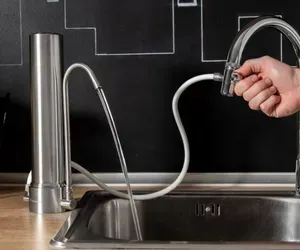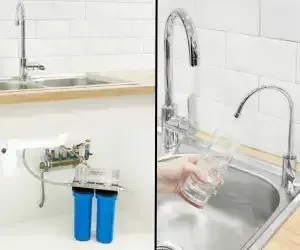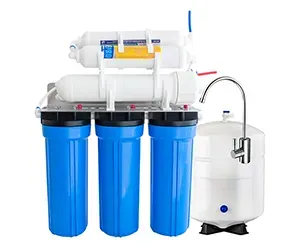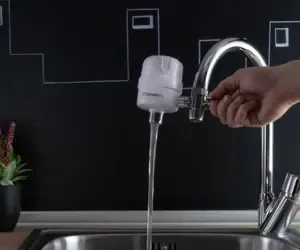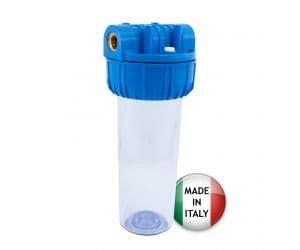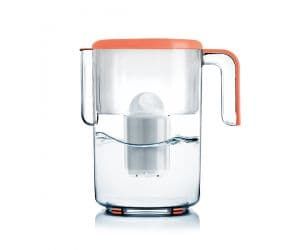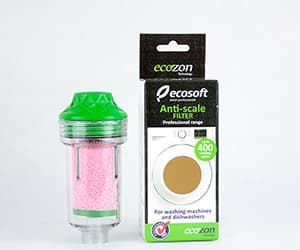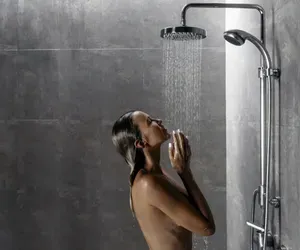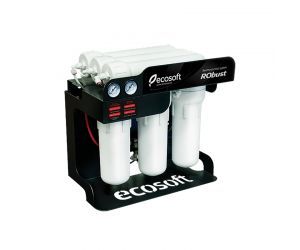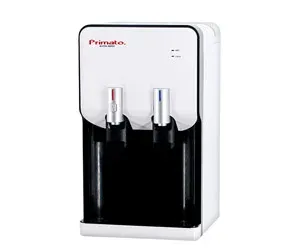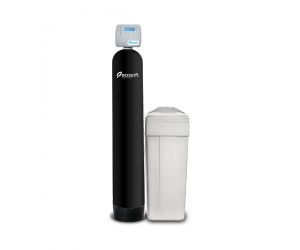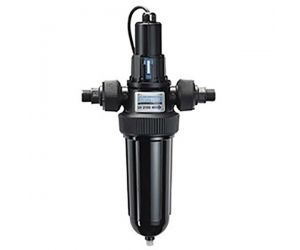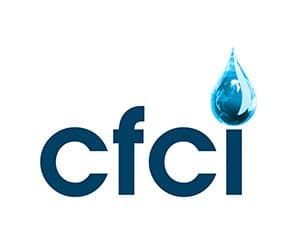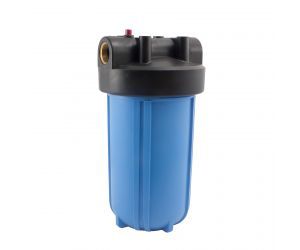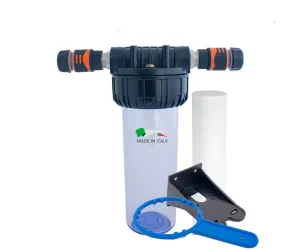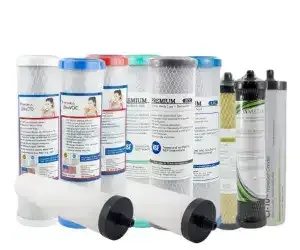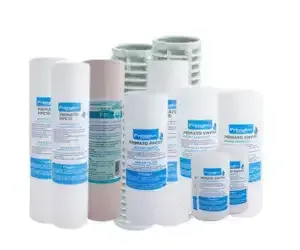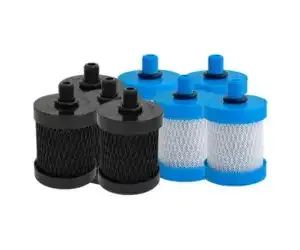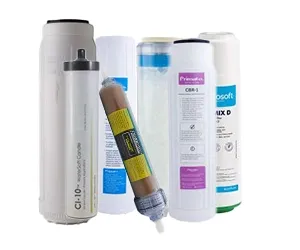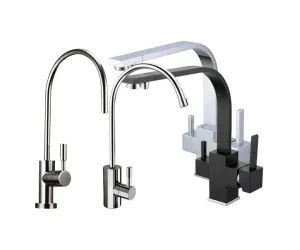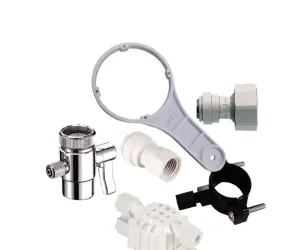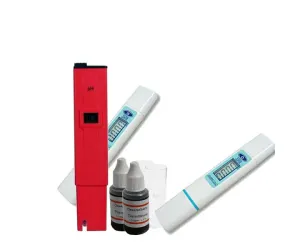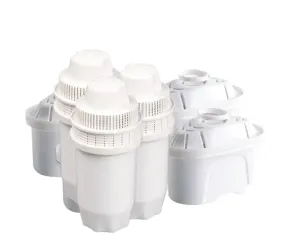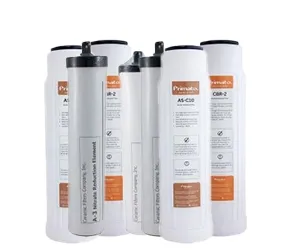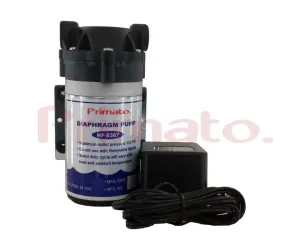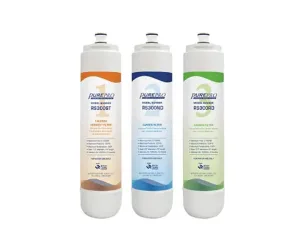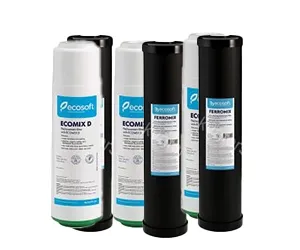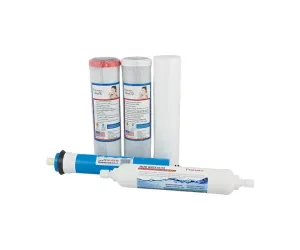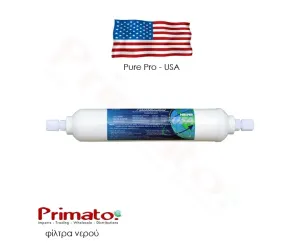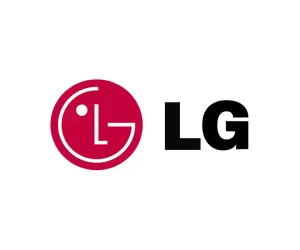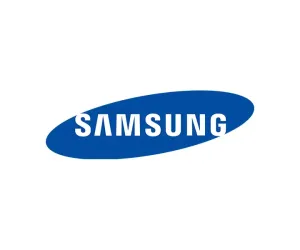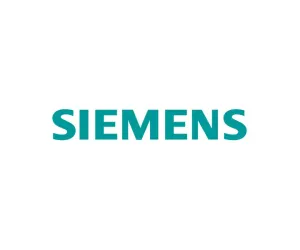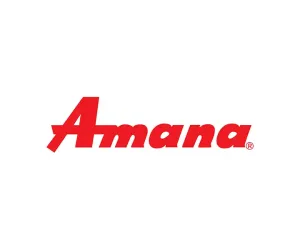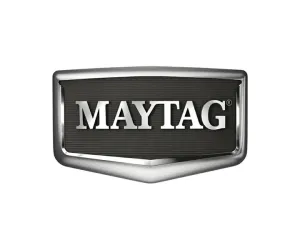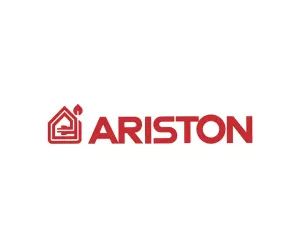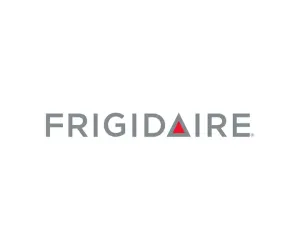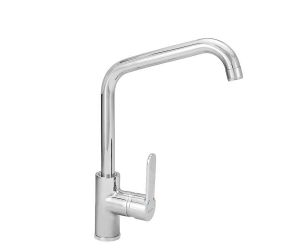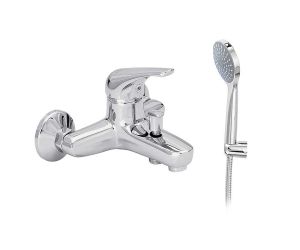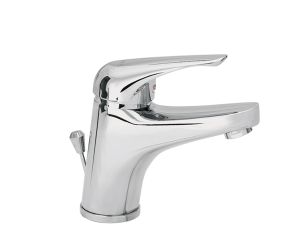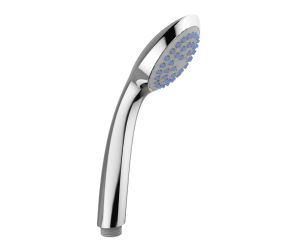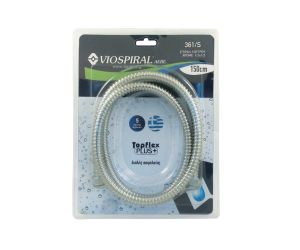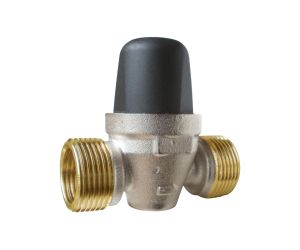Filters for clean drinking water
Filters to drink clean water from our store in Thessaloniki
If the last time you went to the kitchen to quench your thirst you noticed that the water in your glass was cloudy or had a strange smell, you are probably interested in the following article.
The water we drink is not always and in all areas as clean as it should be, even when we cannot perceive it. The old pipes of our house, the pollution of the environment or the pesticides that can end up in the water worsen its quality.
The accumulation of toxic substances and germs in the drinking water can cause various health problems in the long run, especially in our kidneys or liver. One of the simplest and most economical ways to drink cleaner water is to install a filter in your home taps.
When should you use a filter?
You can use water filters in any case you want to be sure that you drink clean water and, especially, if the pipes of the house are old or you live in an area that does not have good quality water.
If you have doubts about the quality of the water you drink, you can send it to a laboratory for microbiological and chemical control. Also, if the water in your area is hard, the filters help to soften it, i.e. to remove the salts from it. Be aware, however, that filters cannot clean the water 100% from the toxins and germs that pollute it.
Infants, pregnant women, the elderly, people with kidney problems and diabetics have a greater need for protection by water filters.
The substances from which they protect us
The purpose of filters is to retain contaminants in the water, but allow nutrients, such as calcium, to pass through. In general, filters retain various toxic substances, such as arsenic, lead, fertilizers, pesticides, etc.
Some filters (e.g. those with activated carbon) also disinfect the water from certain pathogenic microbes, which can cause us various health problems, such as gastroenteritis.
The additional benefits of filters
- They improve water taste and quality.
- They remove unpleasant odors.
- They soften the water, removing salts and sediments.
- Various foods that need a lot of water to cook, e.g. spaghetti, legumes, etc., become healthier and taste better when we use water of better quality for their preparation.
What is the right filter for you?
The filter systems that are available in the market have some special features, which we present to you so that you can choose the one that meets your needs:
- Systems placed under the kitchen sink. They have the advantage that they clean water when entering the house, thus retaining any burden from the pipes of the house. They cost from 100 to 1,000 euro and more.
- The filters that are placed on the kitchen tap have a lifespan of around 5 months. There are also larger systems, which are placed on the kitchen counter and their filter needs to be changed every 6 months or so. The former cost 20 to 30 euro, while the latter from 100 to 700 euro.
- Systems installed at the beginning of the house plumbing. They last longer and are cheaper.
- Jugs with filters, in which the water must remain for some time. They gradually filter specific amounts of water, unlike the rest of the filters, which filter water as it runs from the tap, so you can wash your vegetables with it. The cost of changing the filter is relatively higher.
What to look out for during purchase
- Do a market research before buying a filter and find out about the prices. Ask if installation is included in the cost.
- Before choosing a filter, ask if it is easy to install and how it works.
- Find out about its maintenance (frequency of filter change, cost, etc.).
- Ask if it is easy to find spare parts, if technical support is required and if it is provided by the company.
What you will find in the market
- Devices with carbon filters. They are the most common ones. Activated carbon is an element that absorbs heavy and toxic metals found in water, odors, various organic substances and chlorine. They are cheaper and do not need electricity to operate. These are systems that are placed either under the kitchen sink or on the tap. The jugs also have activated carbon filters.
- Reverse osmosis filters. These filters work as follows: They force water to pass through a membrane, which allows only water molecules to pass through and prevents the passage of unwanted substances. These are usually systems that are installed at the beginning of the house plumbing.
- Ultraviolet filters. They use radiation to destroy a significant part of germs. They need electricity and are usually installed under the sink.
- Appliances that work with distillation, i.e. they boil water, thus creating steam, and as it liquefies again, it is concentrated in another container partially free of germs and salts. Their operation requires electricity, while it takes a long time to clean the water. They are placed before the tap in the sink.
Instructions for safe use
Do not forget to change the filter or clean it, depending on the type and the manufacturer's instructions. If you do not clean it regularly, the filter will retain various substances and the water will end up being of poorer quality than if you did not filter it. In addition, various germs accumulate in the filter, which can contaminate the water.
The frequency on which you should replace the filter depends on its use, i.e. on the amount of water that is filtered daily, on how "dirty" the water is, but also on the type of filter. In any case, it is advisable to consult the manufacturer's instructions.
Are there any disadvantages in using them?
Check the water you drink
If you are unsure about the water you drink, you can send it to a state-accredited laboratory for testing.
There are two types of checking:
- The first one monitors water and will give you an overview of the quality of water that reaches your home. It costs about 40 euro and you will have the results in your hands in 5 days.
- The second one gives a more complete picture of water quality. It costs about 1,200 euro.
If you choose this type of checking, you will have the results in your hands in about a week. You will find the accredited laboratories at: www.quality.ypan.gr/ESYDsite/gr_pages/body1.html.
Filters in the bathroom as well!
Filters are not only intended for drinking water, but can also be used to clean the water we use in the bathroom, as they remove germs, metals, etc., which can cause allergies, various skin problems, etc. In the market, you will find special filters that are placed in the bathtub or in the sink.
Which areas in Greece have a problem with water?
According to measurements of experts, the areas that have a problem are Thessaly, Corinth, Argolis and the Cyclades. In these areas, water is loaded with nitrates, substances that can cause various health problems at a rate that exceeds the average compared to the rest of Greece.
Source: http://www.filtra.nerou.gr
See all countertop water filters - Discover which are the best water filters for Athens.
Recent posts
- The Future of Water: How Primato Filters are Pioneering New Standards in Water Safety
- Primato's Journey at Aquatech Amsterdam: Building Bridges and Expanding Horizons
- The Journey of Water: From Source to Tap - Understanding the Filtration Process
- What are three way water filter taps?
- Shower water filters
- Commercial water filters for hotels, restaurants and cafes
- The reason why more and more people prefer undercounter water filters
- Zeolites in water treatment
- The water supply network of Athens
- The whole truth about water filters
- Russian water filters with aragonite - Purchase guide
- Choosing and buying a countertop water filter
- I live in Athens. Do I need a water filter?
- Water Filter Prices: Full Guide
- Does filtered water help with allergies?
- 10+ reasons to add more water to your lifestyle!
- Zeolite: A natural mineral in the service of water filtration
- Thessaloniki Water: From the source to the glass
- Meet the Greek Water Filters Manufactured in Thessaloniki
- Water Filters with Zeolites
- Turning a coconut into activated carbon
- Thessaloniki: Which Are The Best Water Filters?
- Tap water in Greece: Is it safe? The problems and the solutions
- How to Choose the Right Replacement Filter
- Ultra filtration and Hollow Fiber Membranes explained
- How hard is water in Thessaloniki?
- Whole house water filter cartridges - How to choose the right one!
- Countertop water filters - What to look for before I buy
- Do I need a water filter if I live in Athens?
- Everything you need to know about tap water filters
- Under-sink water filters - Everything you need to know
- Reverse Osmosis - What is it and how it works
- World Water Day - 22 March
- Primato goes sailing!
- What are water filters?
- Reverse Osmosis - Perfect for islands, drilling water and aquariums
- What is the activated carbon found in our water filters?
- Arsenic in the Water - The ubiquitous venom
- Hexavalent Chromium - A Carcinogen That Should Be Reduced Immediately!
- Paranoia of alkaline water - Understanding PH
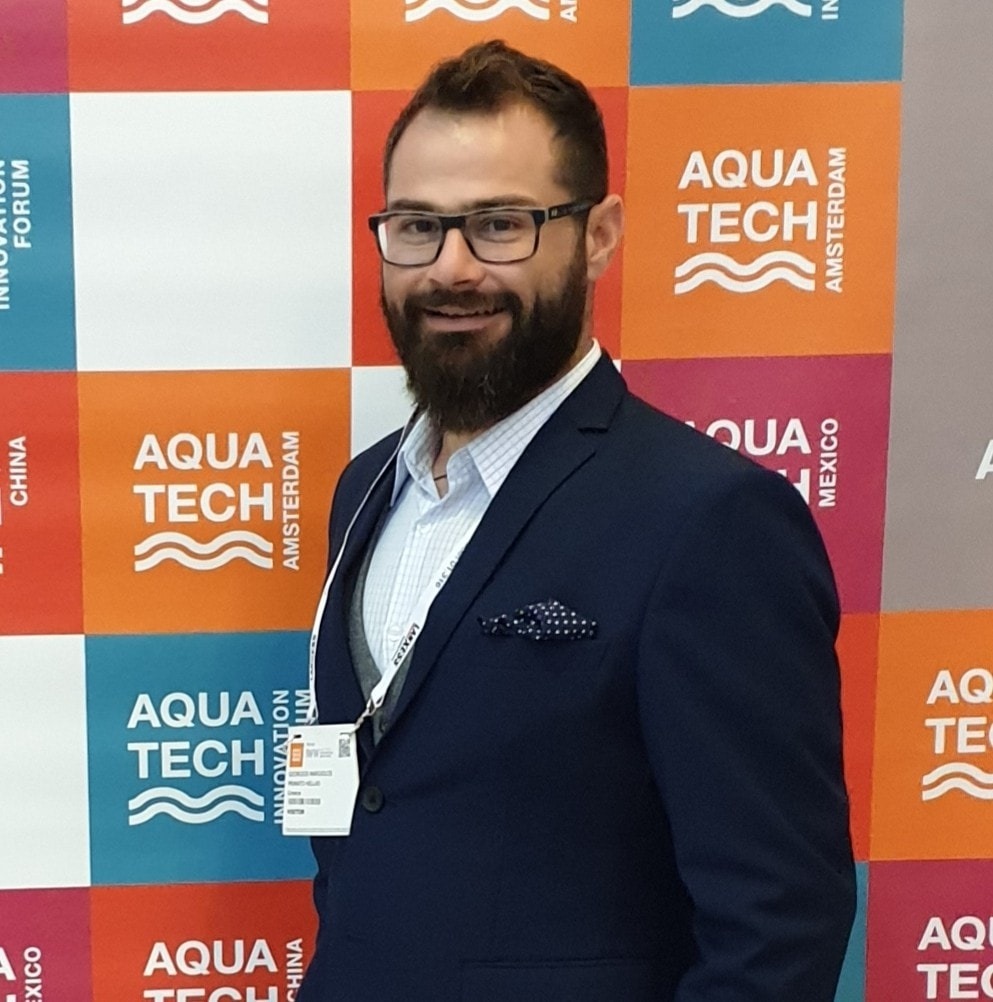
George Margiolos
George Margiolos was born in Thessaloniki and has graduated from the Department of Marketing of the Alexandreio Technological Educational Institute of Thessaloniki. He is fluent in English and (not so fluent) in German.
Ηe has been Project Manager at Avery Dennison - Fastener Division in the UK. There, his main project was to redesign the company's products into new applications so as to become more environmentally friendly. In combination with the fact that in the UK people are more familiar with water filters, he has developed a love for environmentally friendly water filters, which reduce the use of plastic bottles and improving people's quality of life.
Since 2008, he has published over 300 unique educational and informative articles on water filters and new water treatment technologies.
Occasionally, universities and doctoral students request to use George Margiolos' articles in their research because of their quality and uniqueness.
